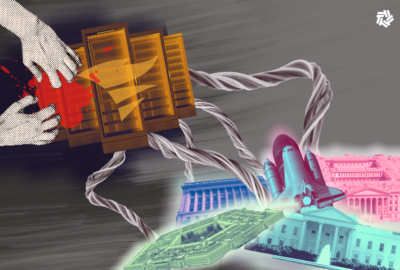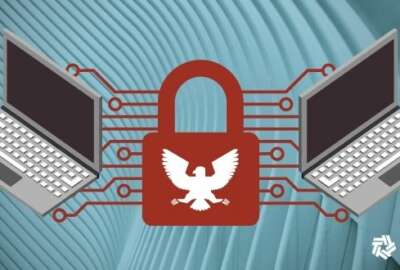

Following the SolarWinds breach, the Interim National Security Strategic Guidance seeks to impose “substantial costs through cyber and noncyber means” on the...
The Biden administration is calling cybersecurity a “top priority” that requires both a diplomatic and military response from the federal government.
Following the SolarWinds breach that has impacted nine agencies so far, the White House, in its Interim National Security Strategic Guidance released Wednesday, seeks to impose “substantial costs through cyber and noncyber means” on the perpetrators of advanced cyber threats.
“We will elevate cybersecurity as an imperative across the government. We will work together to manage and share risk, and we will encourage collaboration between the private sector and the government at all levels in order to build a safe and secure online environment for all Americans,” the guidance states.
The White House is also looking to also double down on federal research and development funding, as well as investments in “foundational computing technologies.”
Anne Neuberger, the administration’s deputy national security advisor for cybersecurity and emerging technology, said in a press briefing earlier this month that the SolarWinds incident highlighted the investments the federal government needs to make to increase network visibility and mitigate future cyber incidents.
White House Press Secretary Jen Psaki told reporters in a press briefing Wednesday that the guidance communicates the administration’s central priorities for national security policy and seizes on a “once-in-a-generation opportunity to renew America’s advantages at home and abroad.”
Psaki said the interim guidance will give agencies a sense of the administration’s priorities ahead of the release of a new National Security Strategy, which the White House expects to release later this year.
Secretary of State Antony Blinken, in his first major foreign policy speech, said the interim guidance looks to highlight the value of diplomacy to the American public, which he said often feels “disconnected” from foreign affairs in their day-to-day lives.
“That’s in part because it’s often about people and events on the other side of the world, and it’s about things you don’t see, like crises stopped before they start or negotiations that happen out of sight. But it’s also because those of us who conduct foreign policy haven’t always done a good job connecting it to the needs and aspirations of the American people,” Blinken said.
The guidance also highlights the administration’s commitment to ramping up next-generation 5G connectivity and universal high-speed internet.
In light of the COVID-19 pandemic, Blinken said the Biden administration will also invest in tools to predict and prevent future pandemics, and “a firm global commitment to share accurate and timely information so that a crisis like this never happens again.”
“None of us will be fully safe until the majority of the world is immune, because as long as the virus is replicating, it could mutate into new strains that find their way back to America,” Blinken said.
Echoing Biden’s speech at the State Department earlier this month, the guidance calls for strong cooperation with the Defense Department and “responsible use of our military, while elevating diplomacy as our tool of first resort.”
“Our ability to be effective diplomats depends in no small measure on the strength of our military. And in everything we do, we’ll look not only to make progress on short-term problems, but also to address their root causes and lay the groundwork for our long-term strength,” Blinken said.
The White House is looking at expanding federal investments in infrastructure and building an “unmatched talent base” to protect the country from cyber threats.
The administration is also looking to elevate international engagement on cyber issues, and work with allies to uphold shape global norms in cyberspace.
“Rapid changes in technology will shape every aspect of our lives and our national interests, but the direction and consequences of the technological revolution remain unsettled,” the guidance states. “Emerging technologies remain largely ungoverned by laws or norms designed to center rights and democratic values, foster cooperation, establish guardrails against misuse or malign action, and reduce uncertainty and manage the risk that competition will lead to conflict.”
Congress has made early progress on that front. The House Foreign Affairs Committee approved the Cyber Diplomacy Act, which would require the State Department to stand up an Office of International Cyberspace Policy that would set diplomatic norms in cyberspace.
The committee also passed the State Department Authorization Act, which requires the department to develop a five-year staffing plan and provide detailed workforce data for the civil and foreign service.
Copyright © 2025 Federal News Network. All rights reserved. This website is not intended for users located within the European Economic Area.
Jory Heckman is a reporter at Federal News Network covering U.S. Postal Service, IRS, big data and technology issues.
Follow @jheckmanWFED


